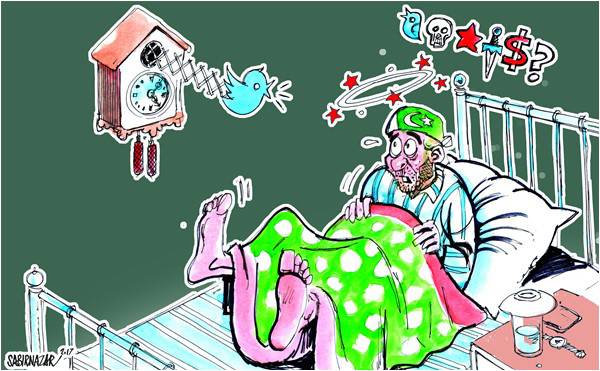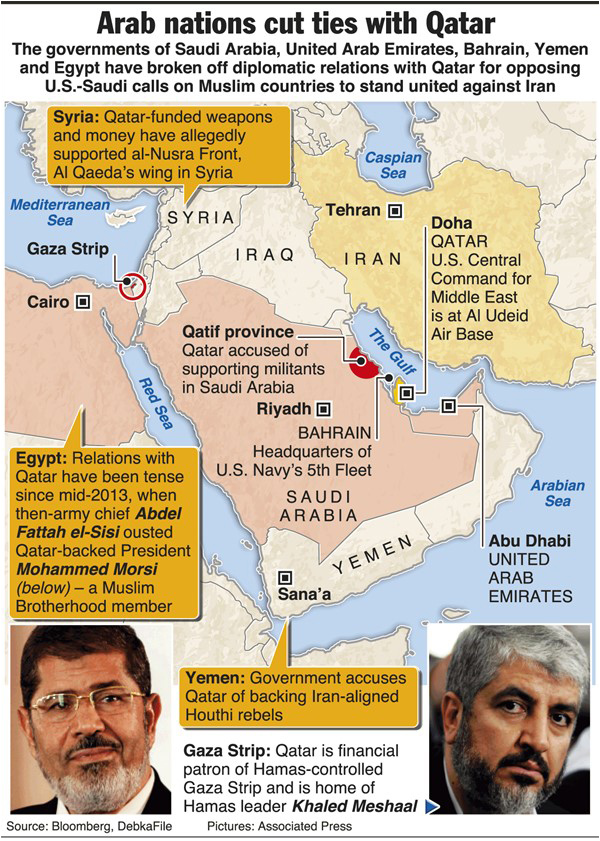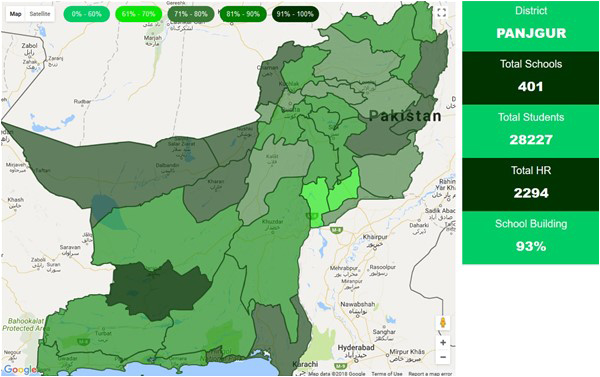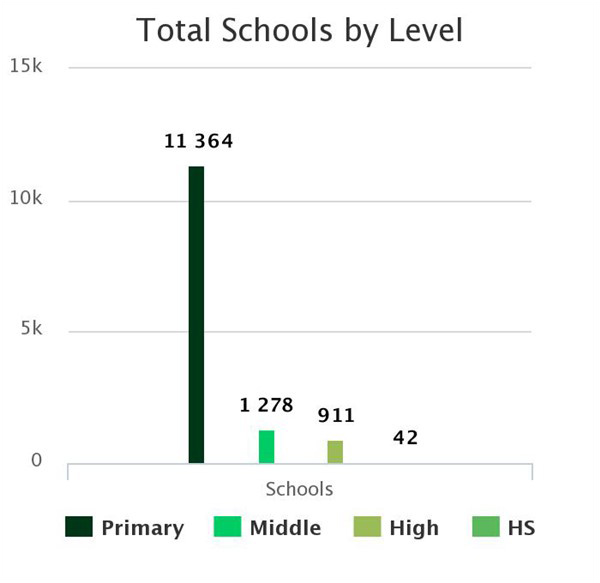
Faizabad dharna
Sir,
The Supreme Court of Pakistan has raised pertinent questions about the Faizabad dharna and in the words of Justice Qazi Faez Isa, the “biggest crime in any society is Fitna and Fasad-Fil Arz”. Those who have assumed unto themselves the role of custodians of our faith are indulging in abusive language which the Holy Prophet (PBUH) himself had forbidden.
What are the sources of funding and who is paying for their food and subsistence? If official figures of 2,000 protesters are to be believed, then a minimum of Rs1,500 per person as expenditure comes to Rs3 million a day, which comes to Rs54 million for 18 days. Enough damage has been done to Quaid’s Pakistan by those responsible for spreading fundamentalism, extremism and intolerance in a country with an official population of 97% Muslim majority.
Instead of the SC being forced to intervene, this should have been the responsibility of the elected executive and paid intelligence and security services to probe as to who was patronizing this dharna? One only hopes that sanity may prevail and another Frankenstein may not emerge from those who are either misguided and are funding such activities.
Pakistan cannot afford such nefarious activities which can potentially pose threats to much needed Unity, Faith and Discipline.
Malik Tariq Ali,
Lahore.
Gas pressure
Sir,
Despite claims made by SSGC and ministerial bodies, gas pressure has plummeted or ceased with the arrival of winter. In particular, the largest cantonment township of more than 1,000 apartments of Sea View township is made to suffer unreasonably so much so that it is impossible to run water geysers or even made a cup of tea in the morning. Customers pay their bills regularly. Will the authorities take notice of this deficiency and make sure that a smooth and uninterrupted supply of gas is provided to the Sea View township to mitigate their hardship, especially concerning the elderly, women and children.
Mazhar Butt,
Karachi.
Anarchist media
Sir,
Through your esteemed paper I would like to appreciate PEMRA. How peaceful it was when the news channels were taken off air. This only proves that the media plays a part in promoting unrest in the people and they are responsible for destabilizing our nation for their personal gains and hidden agendas of their foreign masters.
It is not doomsday as these TV channels would have us believe. These anchor persons are all the same, masters of making a mountain out of a molehill. They first criticize the government for not taking action and ensuring the writ of the state and then go all out against the government for taking action. The role of the media during the Faizabad dharna was almost a replay of the Lal Masjid episode. I appreciate PEMRA for bringing this menace under control and I would like for all political shows be shown only after 11pm if not banned altogether.
Umar Khalid Dar.
Manchester.
Botched operation
Sir,
The Islamabad police operation to clear Faizabad Intersection of under two thousand activists of TLYR was destined to fail from the start. How do you expect the police which has been disarmed, including the right to fire in self defense, to confront a crowd equipped with daggers, firearms, teargas weapons, batons, iron rods, axes? Use of force is the legitimate right of the state to vacate what has been declared an illegal dharna by the superior judiciary. The police should have been allowed to use reasonable force to take over the fortified truck and arrest leaders who were inciting people to violence through hate speech.
The government should not be held captive or be disillusioned by events such as police action in Model Town. The provincial government was as much responsible for what happened as were activists and supporters of the Canadian cleric, who has mastered the art of oratory and holds captive thousands in what is more of a cult-like group than a religious party. The stakeholders of this country must learn lessons from their mistakes, when they were blinded by their myopic short-term political objectives, and allowed groups such as the TTP to emerge. Zia’s ghost continues to haunt this country.
Individuals or groups who indulge in vandalism, flout the laws of the land, blackmail people, take the law into their own hands and collect extortion money must face prosecution and be punished, irrespective of whether they are in the guise of religious parties or ethnic groups. Our men in khaki must confine themselves to defending our borders and securing this country, which today is more insecure than ever before. Similarly the civil government, run by elected representatives, with no stakes in other countries, must depoliticize the police, equip and discipline them to serve as protectors and law enforcers, while eliminating and punishing rotten eggs within their ranks. Laws must prevail over individuals and groups irrespective of their affiliation or status.
Zaman,
Peshawar.
Smart Doha
Sir,
Last year in June, Saudi Arabia, the UAE, Bahrain and Egypt imposed a land, sea, and air blockade on Qatar for its alleged support to terror outfits and being too close to Iran. The Arab neighbours thought that they could pressure Qatar into setting aside its ambitious foreign policy and toe the line of its bigger neighbours.
But during the siege, Qatar signed new military, security, economic, commercial, media agreements. Its economy is also impressively growing at 5.5%. Economic fundamentals are sound as illustrated by its high ratings by major ratings agencies. Economists believe Qatar will outperform its peers in the GCC region this year because of its economic diversification, while on the other hand Saudi Arabia will contract amid oil production cuts and spending rationalisation by the government. Doha’s hydrocarbon exports have continued uninterrupted and new sea trade routes have been established. Now the state is aiming at a higher degree of self-sufficiency in food which was affected by the blockade (Qatar imports most of its food).
In a nutshell, this blockade has proven ineffective or counterproductive. Doha has absorbed the initial shock and re-oriented itself. It will be much bolder in its independent foreign policy. Rarely any state has changed its character so completely in such a short period of time as Qatar has.
Earlier, content to play a role according to its small size, Qatar was a traditional, risk-averse Gulf monarchy until the early 1990s. But the bloodless coup in 1995 brought to power an emerging elite with an ambitious vision. It was heavily funded by gas exports and protected by the United States. Qatar diversified its foreign relations and even included untouchables in the Arab world, Iran and Israel, in its diplomacy instead of submitting to the demand of Gulf states to distance itself from Iran and the Muslim Brotherhood.

On the contrary Qatar has only deepened its alliances with Iran and Turkey and its supporting brotherhood affiliates, especially Hamas, with greater resources. For quite a while now Qatar has been a supporter of the Muslim Brotherhood’s political Islam. Recently, Turkey sent additional troops to its base in Doha and Iranian shipping lines have switched their transport services to Qatar, instead of the UAE and Oman.
Since the beginning of new assertive foreign policy after 1995, the Qatari regional role didn’t follow simple alliance structures but it mediated and interacted on regional issues. It adopted a delicate posture towards its foreign relations with regards to regional and international actors, a balancing act which until now played an important role in raising Qatar’s international profile as a regional power broker and an indispensable nation in regional power dynamics.
On one hand, Qatar monetarily supported Islamist movements such as Hamas and the Muslim Brotherhood and on the other hand, it enjoyed cordial relationships with Europe and the US. But now to add more weight to its foreign policy aspirations Qatar is eager to expand its arms arsenal; recently it acquired Chinese-made short range ballistic missiles SY-400. Qatar has also spent tens of billions of dollars on new fighter jets, tanks and warships. Qatar no longer want to depend only on the US and Turkey for its protection; it wishes to become a middle level military power in the region. So that it can pursue its policy without any fear and any military attack against it is unlikely.
This tussle between Qatar and its Arab neighbours could lead to a much larger conflict as no side is compromising on its stand. This kind of continuing crisis in the Gulf could have detrimental effects on the rest of the Middle East. In this sense, more Arab states would be destabilised as they are pressured to choose sides. Iran and Turkey influence would certainly increase in the region. This power game will definitely lead to a state of polarization at a regional level and will result in an expansion of proxy wars.
With the continuation of this crisis another significant effect will be on the institution of the Gulf Cooperation Council (GCC) which is already being divided into two camps?one led by Saudi Arabia and includes the UAE and Bahrain and another camp of Qatar with the tacit support of Oman and Kuwait. This ongoing crisis will make the GCC a totally ineffectual institution like the Arab League. The GCC as an organisation will become greatly marginalised, dysfunctional, and irrelevant. Its dream of a common currency and defence union will be next to impossible to achieve. In a time of global integration this kind of regional disintegration will cost everyone.
Manish Rai,
Editor, Viewsaround,
Doha,
manishraiva@gmail.com
Sui Northern public money
Sir,
I read an interesting public awareness advertisement in a local daily. The ad was issued by the state organization, Sui Northern Gas Pipelines Limited. The public ad was a waste of taxpayer money for three reasons:
There was no need to use famous actress or model’s picture in this ad. The model’s picture covers nearly 40% of the ad’s space. The model is a good actor but has nothing to do with gas or the use of heaters.

The contents of the ad flew in the face of a practical approach: Gas heater is injurious to health. Gas heater reduces oxygen in a room. Wear warm clothes in winter. Sui Northern must contact the prime minister and chief ministers to ask for a ban on gas heaters due to health hazards to the public.
The state finance ministry and audit department must take notice of such public ads to secure public money that is uselessly spent on such ads.
Khalid Mustafa,
Advocate,
Islamabad.
Baloch school stories
Sir,
This is about the ghosts in Balochistan schools. Eighteen-year-old Abdul Qadir Peer, a student at High School Hirronk, recently told me about his teachers who come to school but don’t come to class. English teacher Tariq Ali enters 15 minutes after class starts. He starts having a conversation with one single student. His mobile phone rings and he goes outside to attend it. He returns after five minutes and says: “Ady mai deek be mara nelet. Bare yak gappe Kant. Bachaka soor makane, na ke shuma bazzag bay.” (Deek is an informal word in Balochi for wife). “My wife doesn’t let me. Every day she says do this, do that. Boys, I suggest you never marry in life.” With these words, his cell phone rang again but this time he didn’t come back because the period bell rang.

Is it what students deserve for waking up early in the morning? Should teachers share this kind of personal information? Is it right for the teacher to use such casual language for his own wife? Is this what parents send their students to school for? This is why so many students quit their studies and start looking for jobs like garage mechanics, drivers, labourers.
Adil Ali, my classmate from a rural area, is very talented and God-gifted. He told me about his village Khairabad’s educational system where classes are built without any teachers being appointed. When they started class 9, they were unaware that they had to choose between the streams of Science and Arts. Their admissions were done in Arts without any career counselling about their future. Three years later, I met him when he was in college and fed up of reading. He said he had been interested in becoming an engineer but he was so naive that he did not know which subject choices to make. By the time he found out, it was too late. Now he is studying Political Science and cursing the educational system of Khairabad. “We have no career counseling in the rural areas which is why so many students are disappointed,” he said.

In Turbat, each year more than 2,000 students arrive from the surrounding countryside in order to get an education since we have no colleges and universities there. But coming to the city is often disappointing too: “No one attends classes. We will bunk and do self study. Teachers don’t teach well. They only take salaries.”
Sanaullah Samad, one of my closest colleagues in DELTA institute of English, is a resident of village Shapuk. He migrated to Turbat three years ago. “The high school teachers of Shapuk are not punctual and the students just come and go every day without learning anything.”
Balgatar is a village in the middle of Turbat and Panjgoor. It doesn’t have electricity. It has one high school where there are no daily classes and just exams full of cheating. My cousin Mehr Ali is from here. He passed his Matric three years ago. But during the exams, he was in Turbat, not Balgatar. “There is no checking of fake students,” he told me when I asked. “Just go and give the paper any time you want.” I asked: “Don’t you fail?” His reply: “Failing in Balochistan! Don’t joke, man.”
Kassak village is nearly 30km from Turbat and has only one high school and it has only three teachers with three classes which are in bad shape. Kassak’s Shakeel Phullan said that the teachers don’t teach and the students play cricket. “The school was donated by a local leader, Zahoor Ahmed Buledai but the authorities are not doing anything,” he said. However, some passionate students go to Jussak high school which is 15km away. If a student needs to drink water, they have to go home to get it. Classes get off whenever the teachers want. Many days are holidays too.
Kallag village tops the list with places with no schools and over 90% of its residents don’t know why an education is important. Children are married between the ages of 12 and 15 and told to work on the farms. One of my friends in Kallag, Hafeezullah, escaped to come to Turbat to go to school. He was forced by his parents to marry at 14. He refused and settled in Turbat where he is a part-time teacher in an English institution. “My parents scolded me and said that they were not going to pay for my wedding now,” he said.
Many of my own cousins are out of school because their parents think that there is nothing in education. It is just “time pass”.
Ali Jan Maqsood,
Turbat.

